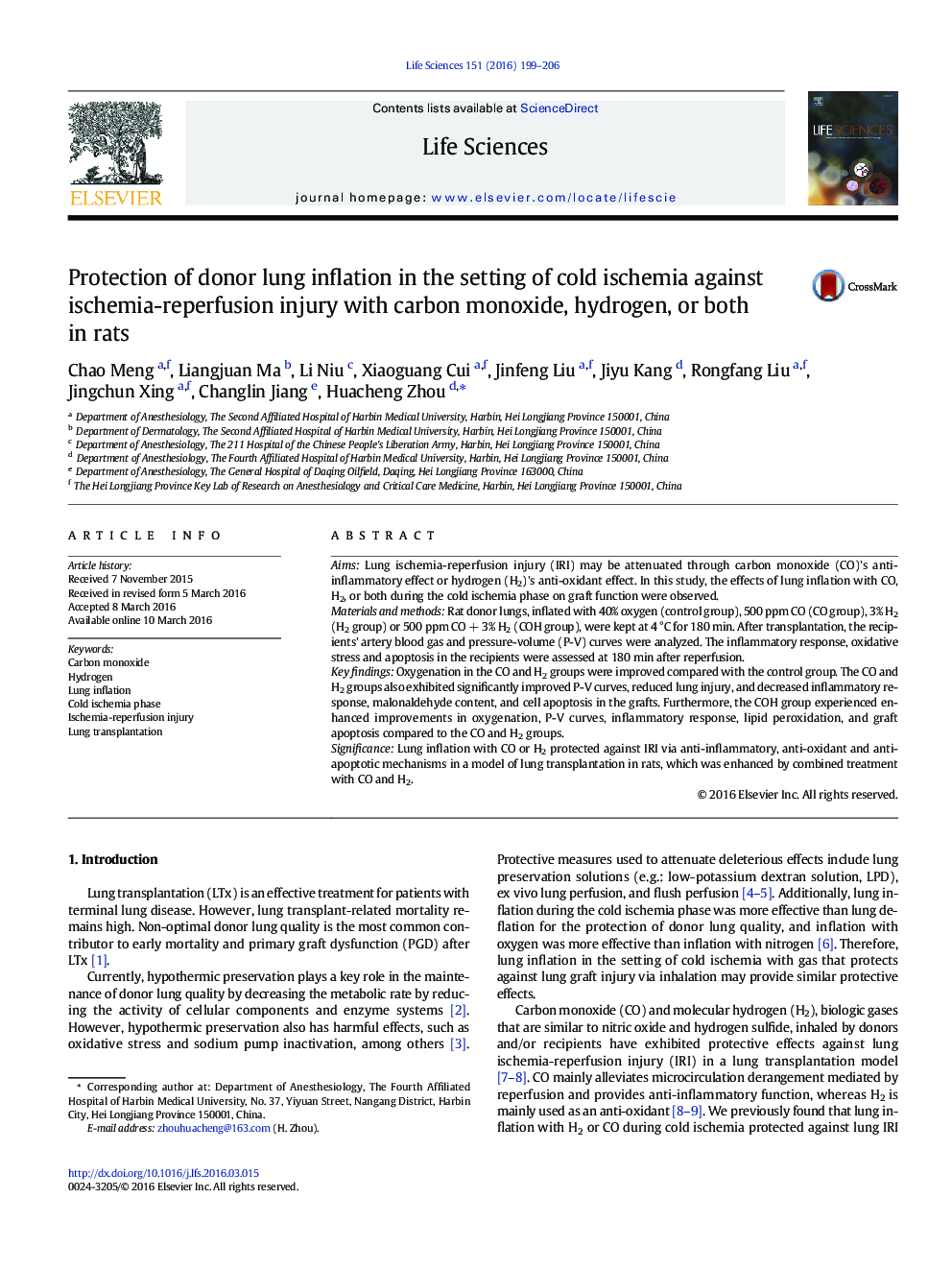| Article ID | Journal | Published Year | Pages | File Type |
|---|---|---|---|---|
| 5841385 | Life Sciences | 2016 | 8 Pages |
AimsLung ischemia-reperfusion injury (IRI) may be attenuated through carbon monoxide (CO)'s anti-inflammatory effect or hydrogen (H2)'s anti-oxidant effect. In this study, the effects of lung inflation with CO, H2, or both during the cold ischemia phase on graft function were observed.Materials and methodsRat donor lungs, inflated with 40% oxygen (control group), 500 ppm CO (CO group), 3% H2 (H2 group) or 500 ppm CO + 3% H2 (COH group), were kept at 4 °C for 180 min. After transplantation, the recipients' artery blood gas and pressure-volume (P-V) curves were analyzed. The inflammatory response, oxidative stress and apoptosis in the recipients were assessed at 180 min after reperfusion.Key findingsOxygenation in the CO and H2 groups were improved compared with the control group. The CO and H2 groups also exhibited significantly improved P-V curves, reduced lung injury, and decreased inflammatory response, malonaldehyde content, and cell apoptosis in the grafts. Furthermore, the COH group experienced enhanced improvements in oxygenation, P-V curves, inflammatory response, lipid peroxidation, and graft apoptosis compared to the CO and H2 groups.SignificanceLung inflation with CO or H2 protected against IRI via anti-inflammatory, anti-oxidant and anti-apoptotic mechanisms in a model of lung transplantation in rats, which was enhanced by combined treatment with CO and H2.
